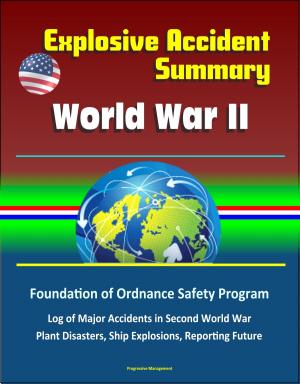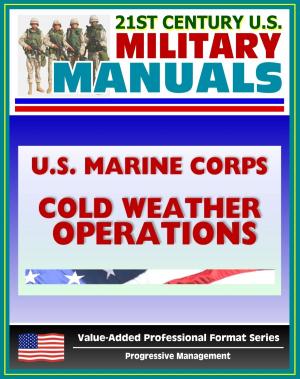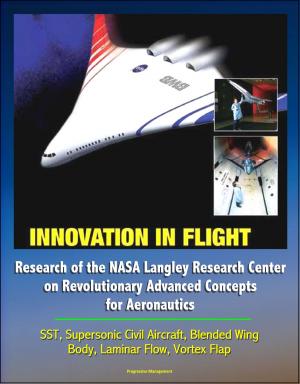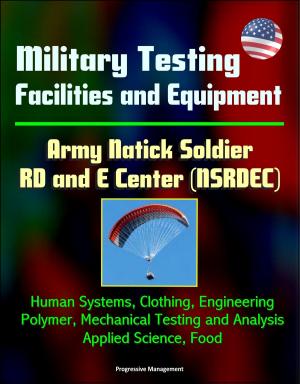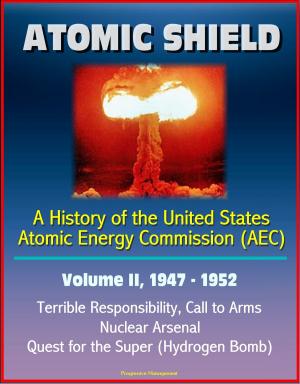Air Force Leadership Study: The Need for Deliberate Development - Leadership Concepts for Air Force Officers, Changes in Personnel and Education Policy
Nonfiction, History, Military, Aviation, United States| Author: | Progressive Management | ISBN: | 9781370638819 |
| Publisher: | Progressive Management | Publication: | September 4, 2016 |
| Imprint: | Smashwords Edition | Language: | English |
| Author: | Progressive Management |
| ISBN: | 9781370638819 |
| Publisher: | Progressive Management |
| Publication: | September 4, 2016 |
| Imprint: | Smashwords Edition |
| Language: | English |
This excellent report has been professionally converted for accurate flowing-text e-book format reproduction. The United States Air Force fully recognizes the critical role it must play in creating military leaders, and it devotes significant time and resources to recruiting and developing its future leaders based upon the premise that the personal leadership skills of any Air Force member can be improved through training, education, and experience. Air Force officers receive intensive leadership training and education in precommissioning sources as well as in the three levels of professional military education. But the leadership development programs in place today will not suffice to produce the senior leaders we need to succeed in the challenging, chaotic, resource-constrained future environment. To answer this need, the Air Force Leadership Study team provides recommendations to enhance the development of senior leaders for the next-generation Air Force.
After describing the type of visionary senior officers needed to lead the Air Force of the future, the study team recommends the identification of "high potential" officers upon selection for field-grade rank. This special designation allows the Air Force to focus education and assignment opportunities on those officers most likely to attain flag rank and senior joint billets. Subsequent recommendations are designed to provide additional leadership development opportunities for officers after they attain flag rank. These initiatives emphasize the focus we must place on developing and continuing leadership education for officers at every stage in their careers. The future strategic environment demands nothing less.
The changes in personnel and education policy recommended by the study team are revolutionary, not evolutionary. Many will disagree with these recommendations, and I challenge the reader to study these issues and think critically about the best way to prepare today's captains to be the great combatant commanders of tomorrow. To quote from the study, "Air Force leaders must generate ideas, foster change, search for unique solutions, and reject the status quo."
This excellent report has been professionally converted for accurate flowing-text e-book format reproduction. The United States Air Force fully recognizes the critical role it must play in creating military leaders, and it devotes significant time and resources to recruiting and developing its future leaders based upon the premise that the personal leadership skills of any Air Force member can be improved through training, education, and experience. Air Force officers receive intensive leadership training and education in precommissioning sources as well as in the three levels of professional military education. But the leadership development programs in place today will not suffice to produce the senior leaders we need to succeed in the challenging, chaotic, resource-constrained future environment. To answer this need, the Air Force Leadership Study team provides recommendations to enhance the development of senior leaders for the next-generation Air Force.
After describing the type of visionary senior officers needed to lead the Air Force of the future, the study team recommends the identification of "high potential" officers upon selection for field-grade rank. This special designation allows the Air Force to focus education and assignment opportunities on those officers most likely to attain flag rank and senior joint billets. Subsequent recommendations are designed to provide additional leadership development opportunities for officers after they attain flag rank. These initiatives emphasize the focus we must place on developing and continuing leadership education for officers at every stage in their careers. The future strategic environment demands nothing less.
The changes in personnel and education policy recommended by the study team are revolutionary, not evolutionary. Many will disagree with these recommendations, and I challenge the reader to study these issues and think critically about the best way to prepare today's captains to be the great combatant commanders of tomorrow. To quote from the study, "Air Force leaders must generate ideas, foster change, search for unique solutions, and reject the status quo."

